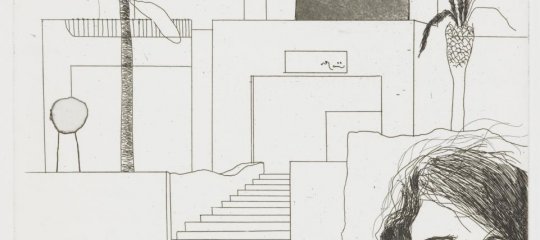San Fransisco State University, εξετάσεις για τη γλώσσα III: A έτος - επίπεδο αρχαρίων (Λία Παπαδάκη)
MGS 151
Instructor:
Efthalia Papadaki
NAME:
Final Examination
Monday, May 21, 2007, 1:30 pm -4:00
pm
TEXT – EXPRESSION
Είναι Κυριακή μεσημέρι. Η Ρόνα,
η Χέδερ, ο Γκάρεθ, η Αλέξα, η
Στέισυ, ο Νίκος, η Αγιούμι και ο
Δαμιανός ετοιμάζονται να φάνε.
Χτυπάει το τηλέφωνο.
Ρόνα: Παρακαλώ; Τι θέλετε;
Νοσοκόμα: Γεια σας! Θέλω να
μιλήσω με τον Κύριο Κατς. Είμαι
απο την κλινική.
Ρόνα: Έρχεται.
Γκάρεθ: Ποιος είναι;
Ρόνα: Τηλεφωνούν απο την
κλινική. Χρειάζονται γιατρό.
Αλέξα: Κάθε βράδυ, κάτι
γίνεται.
Χέδερ: Ούτε τρώμε σαν
άνθρωποι.
Στέισυ: Γλυτώσαμε την επίσκεψη
που περιμένατε.
Νίκος: Στέισυ, μη μιλάς έτσι.
Αγιούμι: Το φαγητό είναι
έτοιμο. Έχουμε κρέας με
πατάτες.
Δαμιανός; Εγώ δεν τρώω κρέας
είμαι χορτοφάγος. Έχει φέτα;
Μόνα: Έχει και φέτα και σαλάτα,
ψωμί και κρασί.
Δαμιανός: Εντάξει τότε.
A1. Answer the following questions (avoid one word
sentences) (25 points)
- Τι μέρα είναι;
- Από πού τηλεφωνούν;
- Τι χρειάζονται;
- Τι λέει ο Νίκος στη Στέισυ;
- Γιατί δεν τρώει κρέας ο
Δαμιανός;
VOCABULARY
A2. Chose the correct word (14 points)
1. .................... (ροκφόρ, νερό,
σαλάτα) παχαίνει.
2. Όταν ήμουν ..................
(νέος, κόκκινος, πλούσιος) έκανα
δίαιτα.
3. Μπαίνουν σ’ένα .................
(μπακάλικο, περίπτερο, μανάβικο)
κι αγοράζουν κρασιά, τυρί και
μεζέδες.
4. Δεν έχω χρήματα. Είμαι
................(πλούσιος, φτωχός,
χοντρός)
5. Θα πληρώσετε με
...............................; (τράπεζα,
πορτοφόλι, πιστωτική κάρτα)
6. Ο σολομός είναι
...................(λαχανικό, ψάρι,
τυρί)
7. Είναι πολλοί Αλβανοί
......................... (καθηγητές,
γιατροί, μετανάστες) στην
Αθήνα.
GRAMMAR
B1. Supply the right months and seasons (15 points)
- Τον Οκτώβριο
, ............................ και
............................ είναι
............................
- ............................,
............................ και
............................είναι
............................
- ............................,
............................ και
............................ είναι
............................
- ............................,
............................ και
............................ είναι
............................
B2. Supply the correct form of the adjective (12
points)
- Μου αρέσει πολύ το
................... φαγητό (από την
Κίνα)
- Η γιαγιά μου είναι ...................
(από την Αγγλία)
- Οι φίλοι μου είναι ...................
(από την Ιταλία)
- Η φέτα ένα ...................τυρί
(από την Ελλάδα)
- Η γυναίκα του Φάνη είναι
...................(από τη Ρωσία)
- Το αυτοκίνητό μου είναι
................... (από την Αμερική)
- Ο Χασάν είναι................... (από
την Τουρκία)
- Είναι πολλοί ................... (από
την Κύπρο) στην Αγγλία.
- Ο καθηγητής μου είναι
................... (από την Ισπανία)
- Η Ελλάδα είναι ένα
...................κράτος (της
Ευρώπης)
- Το ................... ποδόσφαιρο
είναι πολύ καλό (από τη
Γερμανία)
- Η Νικόλ είναι ................... (από
την Γαλλία)
B3. Supply the correct forms of the verbs έχω,
είμαι, βλέπω, παρακαλώ, ξεχνώ,
κάνω, ακούω, τρώω, λέω, πάω. (10
points)
- ...................(εσείς)
αδέρφια.
- ...................μουσική;
- ................... κρύο.
- ...................πολύ καλοί.
- ...................σινεμά;
- ...................(εσύ) τη μητέρα
σου;
- Ο κύριος Γιάννης ...................
πολύ.
- ...................(εγώ) τα κλειδιά
μου.
- ...................(αυτοί) τους
φίλους τους.
- Ο Κώστας................... τα νέα
στη Μαρία.
B4. Use the correct form of the nouns (14 points)
1 ....................... (Νίκος)
είναι...................... (αδερφός)
της........................ (Μαρία) και
της...................... (Ελένη).
2. Βλέπω τις..........................
(φωτογραφία) του .........................
(κύριος) και .................. (κυρία)
Μαυράκη.
3. .......................... (δασκάλα) μου
έχει τρία ............... (παιδί)..
4. Σου αρέσουν.....................
(μελιτζάνα); Προτιμώ ..................
(κολοκύθι)
5. Την Κυριακή θα πάμε στην
.................(εκκλησία).
6. Έχω πολλά ...................(βιβλίο)
στο .....................(σπίτι)
B5.Use the aorist of the verbs Αγοράζω,
παίζω, ετοιμάζω, διαβάζω, γυρίζω,
νομίζω, αρχίζω, γλιτώνω, στρώνω,
χάνω (10 points)
- Χτες ................... γάλα και
μακαρόνια.
- ................... στο μπάσκετ.
- Ο Γιάννης ...................το
τραπέζι.
- ...................τις εξετάσεις.
- Στις 6.00 ................... το
ποδόσφαιρο.
- ...................(εμείς) πολύ αργά
χθες το βράδυ.
- ................... ότι δε θα
έρθεις.
- ................... (εγώ) πολλά βιβλία
αυτό το καλοκαίρι.
- Τα παιδιά ...................
μπάλα.
- ................... πολλά γλυκά.
ΚΑΛΗ ΕΠΙΤΥΧΙΑ!!










